Pebble mine would transform Alaska landscape
Residents debate open-pit proposal that could double the population in region; Northern Dynasty fields barrage of questions at conference
Last updated 4/24/2005 at Noon
Residents of Southwest Alaska - including a former state governor - expressed passionate opinions about the proposed Pebble open-pit mine at a conference in the village of Newhalen April 7-9, demonstrating that there will be a host of social issues to deal with even if mine developer Northern Dynasty can overcome the project's daunting environmental and economic hurdles. Local Natives are worried about the threat to their subsistence lifestyle, lodge owners and guides fear tourism could change and anti-mining NGOs are making sure people see the worst possible side of the industry.
The University of Alaska Fairbanks' Bristol Bay Campus sponsored the mining and sustainable resources conference with the help of a federal Title III grant, for providing education to minority groups. If nothing else, mining executives, geologists, students, Native elders and environmentalists certainly learned about how to communicate with each other, crammed into a small space and sharing the same home-cooked food.
Newhalen's mayor, Bob Rychnovsky, kicked off the conference with a short speech. "I hope that each of you as you flew into the area appreciates the beauty and the uniqueness of the land we have here," he said. "When I moved here in 1979, I not only had longer hair, but I was completely awed by what I saw here. ... Here no one needed to go hungry because of the large numbers of fish in the rivers, the caribou, the moose and the game birds on the tundra."
Since the late 1970s the farmed salmon industry has undermined the wild salmon fisheries in the region, Rychnovsky said. Trapping has also declined severely because of the world's negative view towards wearing fur. Sport fishing brought in a new source of revenue, but the recently reduced escapement of salmon on the Kvichak River has limited the amount of fish that can be taken each day and far fewer tourists are coming now. In previous years prominent people such as former presidents Jimmy Carter and George Bush Sr. and the late singer John Denver visited the area.
"Also the sharp rise in the price of fossil fuels: the local price of gasoline has risen to over $4 per gallon, with stove oil not far behind," Rychnovsky said. "Heating our homes and driving our trucks and snow-machines and four-wheelers has become very expensive. Virtually all our goods, materials and services are flown into our area, and fuel prices have dramatically increased the cost of shipping and of travel back and forth to Anchorage. ... So what's the answer to our financial problems? In some views the only realistic solution may be mineral development."
The primary goal of mining companies is to make profits for their shareholders, Rychnovsky went on, and this goal has clashed with the goal of protecting the environment at times with disastrous results.
"Do our local residents want the mineral development to occur?" he asked.
"I believe that 10 years ago, when our area was much more financially stable, the answer would have been a resounding no to an open-pit mine.
But our area is already in a pit of its own, and I believe that there are many differing views about that question.
People need money to live, our youth need jobs in order to develop goals and stay out of trouble, but even among those who favor mineral development, more important than money is the concern about how the mine will affect the land."
Newhalen chief: good and bad
Raymond Wassillie, chief of the tribal government of Newhalen, also presented both sides of the argument. Newhalen has a tribal membership of 185. "We are a Native community, but also we have open doors to prosperity, life and introduction to nature," Wassillie said. "I see a lot of prospects, I see a lot of good in it, I see a lot of bad in it. ... Open your hearts and listen to every speaker today and keep an open mind. ... We have to live with it, we have to keep talking. If we don't talk, we're not going to get anywhere."
During his life Wassillie has had to jump from the 19th century to the 21st century, he told the conference. When he was a child he was taught not to look people in the eye out of respect for his elders. Now he has to speak in public in front of large audiences.
Newhalen and the neighboring village of Iliamna, two of the closest villages to the Pebble deposit, have not taken a stand for or against development of the mine. The villages of Ekwok, Koliganek, Nondalton and New Stuyahok have passed resolutions opposing the mine. The Lake and Peninsula Borough, however, with a total estimated population of 1,551, has endorsed mine development on condition that it is done with appropriate consideration for the environment.
Many of the villages that would be affected by the mine are located in the Lake and Peninsula Borough, which is 73.5 percent Native, according to the 2000 U.S. Census. Others are in the adjacent Bristol Bay Borough, which has a population of 1,099, of whom 52.5 percent are white and 43.7 percent Native. The construction of the mine is expected to require 2,000 workers and there would be around 1,000 permanent employees at the mine after it is built, according to Northern Dynasty.
"I think we really need to keep an open mind, and we need to have our ears wide open and our hearts wide open and listen, and we need to be paying attention to the things that really matter to us most," the mayor of the Lake and Peninsula Borough, Glen Alsworth, told the conference.
Former Governor Jay Hammond has lived in the region since 1946
The region's most famous resident is undoubtedly former Alaska Gov. Jay Hammond, 82, who has lived near Lake Clark since homesteading there in 1946. Hammond is enormously popular in the state, partly because of his charisma, eloquence and talent for writing humorous poems, but even more so because during the construction of the Alaska Pipeline he oversaw the creation of the Permanent Fund, in which oil and other mineral revenues are invested, with an annual dividend being paid to every Alaskan.
"It's likely the future of Pebble will have less impact on me than almost anyone else in the room," Hammond said, referring to his advanced age.
"It's far more fitting to hear from those of you who if the project is undertaken will be favorably or unfavorably impacted." Nevertheless, Hammond had something to say about Pebble: "No doubt most of you have already formed an opinion, which naturally will be heavily influenced by your own self-interests.
Those who believe the jobs and development which would occur offset the inevitable alteration of both the physical, social and economic environment, no doubt support the project, just as those who wish to maintain their village lifestyle and pristine nature of the area will oppose what, to them, would hazard environmental degradation of one of the loveliest, most ecologically productive areas on the face of the earth.
"The debate wages already fast and furious," Hammond continued. "While mining proponents evidence commendable concern for such matters as water quality and fishery habitat and are certain they'll do their utmost to protect them, past history, I'm told, indicates that in all too many instances those qualities suffered inestimable damage, despite the best of intentions."
Hammond says project needs to meet four criteria
Some people believe that the salmon habitat should remain undefiled forever, but personal self-interest alone should not determine Pebble's fate, Hammond said. Pebble should be evaluated on the basis of four criteria he used as governor to determine support or opposition to any resource development project, Hammond suggested. These are: Is it environmentally sound? Do most Alaskans favor it? Can it pay its own way? Does it at least begin to meet the requirements in Section 8 of the Alaska Constitution to manage resources to the maximum benefit of all Alaskans?
"To date only oil begins to meet all those criteria," Hammond said.
As governor, he turned down a proposed petrochemical program on the Kenai Peninsula that would have created scores of jobs because it required a subsidy from the state.
"This, of course, brought charges of my being anti-development.
That charge is at least partially correct.
While I would support healthy development projects which clearly meet those crucial criteria, I oppose what I term unhealthy development, which fails to do so." By not imposing sufficient royalties or severance taxes on the fisheries, timber and mineral development industries, and eliminating income tax, the state has created a fiscal gap, Hammond added.
"It cannot be determined if the Pebble project will adequately meet those four criteria, I believe most Alaskans feel vital to help the economic development," Hammond said. "Since no final plan has yet been submitted by which Alaskans could determine how well Pebble meets those concerns, it is premature to jump to what may well be mistaken conclusions." Hammond called for an unbiased agency such as the Institute of Social and Economic Research at the University of Alaska Anchorage to evaluate natural resource use and determine to what degree each project meets his criteria.
"Absent such evaluation, the public is forced to rely on propaganda disseminated by proponents and opponents," Hammond said.
"For better or worse it is evident that you can't stop what many term progress, but that does not mean that you can't steer it.
...
A development project which may well prosper the local public sector economy through property taxes may well cost the state public-sector economy an arm and a leg in the provision of additional state-funded services.
Ideally these economies should be in balance." If he were governor today, Hammond would oppose the Pebble project until it proved itself to be environmentally safe and contributed more to the Permanent Fund than the current law provides for, he concluded.
Northern Dynasty urges people not to decide until mine plan is complete
Bruce Jenkins, Vancouver-based Northern Dynasty's chief operating officer, encouraged conference participants to hold the company accountable. "Don't always believe what we say. You don't really know who we are yet, so there isn't a basis of trust, but we would ask that you keep an open mind and compare what we do against what we say, and hopefully over the long term that will provide a firm foundation or basis for you to have a more trusting relationship with us, because I think what you're going to find is that we walk the talk," Jenkins said.
"We're not here to sell the project to you," he continued. "I don't want you to listen to what I say and make a decision in favor of the project today. ... There is no project defined yet. There are concepts. ... It boggles my mind to think that in the absence of a project definition, in the absence of those details, and in the absence of all the information that if you put all the reports together will probably be as long as this table, it boggles my mind that anybody could make up their mind that this project should not proceed. ... This is not being fast-tracked."
Pebble is a gamble and there is no guarantee that the project will be permitted, Jenkins said. "But we are confident, based on what we know so far, that there's a very good chance it could be permitted if we design it properly and if we listen to your concerns carefully and intently." However, Jenkins took issue with some of the most outspoken opponents of mining, in particular Bonnie Gestring from the anti-mining Mineral Policy Center in Montana, who had rattled off the details of various mining failures in that state earlier in the session.
Jenkins: Limes in the orange bowl
"I've been scanning the websites and I've been looking at some of the material that's been presented by those in the audience that would lead you to believe that this mine is an ecological catastrophe and shouldn't be permitted, and although I respect their right to raise those types of questions and concerns, I do quarrel with some of the methods and some of the inferences that are made, whereby mines in Montana are compared to mines in Alaska, and where the permitting process in Montana is equated to the rigorous permitting process in Alaska," Jenkins said. In fact, Montana is the only state to have banned the use of cyanide in gold extraction.
Jenkins' sons played a joke on his daughter when she was a toddler, he said. They cut up a lime from the fruit bowl and pretended it was an orange. When she tasted the lime she spat it out and refused to eat oranges for months afterwards. "She thought all of the fruit in that bowl was the same taste as that lime. ... The relevance of that is this: do not be swayed by inappropriate examples of poor mining practices in other jurisdictions. Those are the limes in the orange bowl. There are many, many examples of responsible mineral development where the kind of horror stories you've been hearing about do not happen."
Northern Dynasty brings a policy of "no net loss" from Canada to Alaska.
Canadian federal law compels mining companies to ensure there is no net loss to fisheries as a result of their projects.
There is no such legislation in Alaska, but Northern Dynasty will impose that high standard of performance on the Pebble project, Jenkins said.
For example, 28 stream monitoring systems have already been installed.
"We know the water's important there, we know we need good information, and we went out to get it," Jenkins said.
"Not a back of the envelope, quick and dirty exercise.
Thorough, rigorous, professional, and in the final analysis, defensible...
We hired the best wetland scientists in Alaska."
Jenkins: local respect, permits toughest challenges
Having met bankers, shareholders and investors in London recently, Jenkins realized that raising $1.5 billion would be the easiest part of the project. Winning local people's respect and getting through the state and federal permitting will be the toughest challenge, he said. "We know this project won't be permitted if it's not in harmony with your local values and priorities. ... Do not be misled into believing that it's either mining or protection of the environment. That kind of mentality is a confrontational mentality that was used decades ago to try to stop projects. I'm hopeful there'll be a more honest and objective dialogue on this project."
There are hundreds of locations in Alaska, Yukon and British Columbia where mining activity has taken place over the past century, and there is not a single example where the mining has resulted in the destruction of a watershed's fishery, Jenkins said. "Yes, of course there have been impacts, particularly impacts for the mines that were 50 or 100 years old, but the more modern mines are, the less the impacts and the better-managed they are."
Fort Knox in Alaska is a good example of a responsible open pit mine, according to Jenkins, as is the 70,000 tons-per-day Gibraltar copper mine in British Columbia, operated by one of Northern Dynasty's sister companies, Taseko, and the Brenda mine in British Columbia. At the Highland Valley copper mine, also in British Columbia, operated by Teck Cominco, the tailings pond is stocked with rainbow trout and is a world-class trophy fishery.
Jenkins: Opportunities for entrepreneurs
The Pebble project creates an incredible opportunity for entrepreneurs and for people who want to retrain and get new jobs, Jenkins said.
Northern Dynasty is working with the various campuses of the University of Alaska to ensure that adequate training and education is available.
The company has a zero tolerance policy for drugs and alcohol, and it is prepared to build isolated camp facilities for employees if village residents do not want them living in their communities.
On the other hand, the villages may choose to integrate employees and their families.
Local residents who go to work for the mine will be allowed to hunt and fish as usual, but employees from outside Alaska will not be allowed to do this if they are based at a camp.
At the end of Jenkins' speech, Dan Oberlatz, a cofounder of Alaska Alpine Adventures in Lake Clark National Park, publicly presented a check for $500 to Brian Kraft "to help level out the playing field". Kraft owns the Alaska Sportsman Lodge on the Kvichak River and formed the Bristol Bay Alliance to oppose the Pebble project, with the slogan "Pure water is more precious than gold!" Another guide from the Fishing Unlimited Lodge on Lake Clark complained that Jenkins was making people feel stupid by failing to see why they wouldn't want the mine.
In response to a question about dust control, Jenkins said that the option of a buried slurry pipe to take the concentrate from the mine to the port on Cook Inlet was being looked at, as an alternative to haul trucks. After the water from the pipe is treated, it would be discharged or pumped back to the mine site. "That's being studied as we speak, at great expense, because we think it makes a lot of sense, there's lots of precedence for that," Jenkins said. There would still be a road to the port to transport equipment and supplies, he added.
Raymond Wassillie challenged Jenkins on the subject of bear guards.
Some Newhalen residents had worked for Northern Dynasty as bear guards in summer 2004, but they didn't have any insurance, he said.
"If a bear attacks him, he's done.
No insurance, nothing.
No $50,000, and I don't like it," Wassillie said.
"Our field staff, including consultants and our own employees, are all working in an environment where there are bears.
The bear guards are trained and armed," Northern Dynasty's environmental project manager, Ella Ede, told Mining News.
"None of the Northern Dynasty employees or consultants have any 'extra' insurance, but they are all covered by Workman's Compensation.
Additionally, there is a corporate liability insurance policy which covers aviation - helicopter and airplane travel."
Summarizing Northern Dynasty's social position again, Jenkins told the audience, "I think it's inappropriate for you to be afraid, because that's an emotion that decouples you from reason. We are sensitive to your concerns."
Locals weigh economic possibilities against risks to environment
Tatiana Askoak from Newhalen did think it was appropriate to be afraid, however.
If Jay Hammond was the oldest presenter at the conference, 24-year-old Askoak was probably the youngest.
She is currently a student at the University of Colorado, majoring in environmental biology and environmental studies.
Askoak gave a talk about the Summitville mine close to her school.
Pebble will not be a cyanide heap-leaching operation like Summitville, where there was a leak in the liner of the heap leach pad, killing fish in the Alamosa River in 1991.
Galactic Resources declared bankruptcy and the reclamation cost taxpayers over $150 million.
The reclamation bond had been just $4.5 million, according to Askoak.
After hearing what farmers and ranchers in the Summitville area had to say, Askoak cried. "I think their experiences are valid and we should know about them and learn from them," she said. When Askoak was at high school she wanted to get out of Newhalen, but when she went to college she found herself surrounded by people who didn't know her, and realized how much she took her own community for granted, and what a huge support they were. Askoak plans to return to Newhalen after graduating and set examples for the younger generation.
"We have been told over and over again that there's nothing yet to oppose, because there's not even a mine project yet," Askoak said. "If we wait until it's all planned the proposed project will be harder to prevent, because we won't be able to organize in time to stop the mine. Using the lime and orange example from yesterday, I just wanted to say that we don't know if Northern Dynasty is going to give us a lime or an orange. They're giving us the same promises that all the mines have been giving the other people. So I'm not going to take that risk. ... There is no guarantee. We can't gamble on the issue."
Askoak can see why some people want the mine for economic reasons, but the region should find alternative paths to development, she said. "There are other venues of employment in our area that don't involve such a heavy environmental impact, and why don't we have a piece of that, why don't we have our own lodge, our own guiding service, you know? Guiding services and lodges in this area are opposed to the proposed mine, but many of them have not given enough jobs to locals. ... Are we going to be reactionary and let things happen to us, or are we going to take the initiative to make things happen for ourselves?"
Summitville probably worst example
Jim Briscoe, president of Liberty Star Gold, one of the juniors that is exploring for other deposits close to Northern Dynasty's claims, invited Askoak to visit mines in Tucson, Ariz., at the expense of his company. "Unfortunately Summitville is probably the worst example of mining in the entire United States, but it happened 20 years ago and we've learned a great deal from the Summitville experience," Briscoe said. Pebble will use froth flotation, not cyanide, he pointed out, although Briscoe himself is not involved with the development of the mine. Northern Dynasty has not yet ruled out the use of cyanide in some part of the mining process at Pebble.
Brian Kraft of the Bristol Bay Alliance took a slightly more conciliatory tone than Askoak in his presentation.
Kraft came to Alaska 17 years ago and has been in the business of tourism and fish guiding in the Bristol Bay area for 12 years, he said.
"I'm not a PhD, I'm not a geologist, I'm going to speak to you from my heart today." Kraft learned about the Pebble project in May 2004.
"My original reaction to that was, oh, fantastic, it'll be great, there's going to be economy, jobs, and everything.
And then I started talking to some people about it, actually people that were at my lodge, fishing, and one gentleman who was a geologist and works for ConocoPhillips said that the mining industry has got a bad history.
...
I tried to educate myself."
Kraft attended presentations by Northern Dynasty and didn't hear anything negative. So he decided to learn about the best mines in the world and the worst mines to get both sides of the story, and to talk to people in Igiugig, the village nearest to his lodge. Then he went to see Alaska's lieutenant governor, Loren Leman, who told him that the mine would be built unless it was economically unviable for the company - or if the people of the region spoke out and said they didn't want it in their area.
"I wanted to make sure that the people of this region got an education ... take a look at the industry as a whole, then take a look at Northern Dynasty, take a look at Liberty Star, take a look at Alaska Earth Sciences and let's look at this on a broad base, let's take it as a whole, and then let's get down to individual companies," Kraft said. "I wanted people to visually see what mines would look like and what they would be."
Kraft's next step was to start the Bristol Bay Alliance, which is not an environmental group, he said. "I am not an environmentalist myself. I worked on the North Slope as a roughneck for four years for Doyon. ... I understand that we have to drill for oil. I understand that we have to mine for minerals. ... I'm not telling us to lock up the state, I'm not telling us not to do these things. I'm saying, let's become educated, let's learn what it is that we are talking about here, let's see what it is that's being planned for up here, and then folks that are here can work together and decide, is that what you want for your area?"
The Bristol Bay Alliance's website presents a very strong anti-mining position, however, with statements such as: "What most people don't know is that the hard-rock mining industry is the most polluting and destructive industry in America. The proposed Pebble mine may pose the greatest single threat to this area's salmon-bearing rivers and the people who depend on them." One of the sections of the website is "The Mining Industry's Record of Destruction."
Bristol Bay Alliance visited mines in Nevada
Kraft told the conference how he put together a group of 17 people to visit mines in northern Nevada, which had not had a positive impact on the local environment and communities, according to him. The Pebble area could become a mining district, not just one mine, he said, the biggest one in Alaska. "Is there potential for great financial gains and economic gains in employment? I'm sure there are. Is there great potential for environmental problems? I'm sure those go up exponentially as well."
Lydia Olympic from Igiugig, president of the village council, was one of the people who visited the mines in Nevada and Kraft asked her to give her impressions of the trip.
First she told an entertaining story about how her aging mother went out in her nightgown and shot a bear that was eating at their fish camp.
"I tell that story for a reason," she said.
"Because when Brian offered us tribal leaders to go down just to get a visualization of what we saw, I was astounded.
It didn't matter whether or not they were well-operated mines, or whether or not they were in compliance or whether or not they were out of compliance.
What mattered was the ground.
...
I don't care how safe it is, you will still scar the land, the land on which we depend on, the land on which we live off of still, the very land that my mom, the very land, the water, the fish, that my mom says we have to protect the way I protected our fish from that bear."
The Western Shoshone live in the vicinity of the Nevada mines that the Alaskans visited. They are no longer able to fish, hunt or gather pine nuts in that area, according to Olympic. "I couldn't comprehend the size of this mine or the destruction that it would do until I saw with my very own eyes." Another serious consequence is that mining divides communities, and this has already started in the Pebble area, Olympic said. "Even within my own family I have people who are for the mine and there are others that are against the mine."
"I do agree with what Bruce has said, let's leave no stone unturned, that's a comment that I have heard him say from day one, so I've got to believe that he means that," Kraft said.
"Let's leave no stone unturned, let's look at all the possibilities.
Let's look at the possibility of working together on this and developing it.
Let's look at the possibility of working together on this and not developing it.
That should be a choice also.
You should have that choice.
I believe in the inherent good of people.
I don't think for a minute that Northern Dynasty or Liberty Star, any of the companies want to come in here and do any damage environmentally to the land by releasing toxins into the environment."
Kraft called on the Bristol Bay Native Corp. and the Lake and Peninsula Borough to explore options for using renewable resources and not to make mining the only choice available for the region's economic development. There should be a Native-owned lodge in every village and a local fish-processing plant, he suggested. "Ask yourselves what you want this area to look like, 10 years from now, 20 years from now, 30 years from now. ... I urge extreme caution."
Eleanor Johnson from Nondalton, president of Kijik Corp., said that she had recently heard a presentation by Scott Brennan from Alaskans for Responsible Mining and that he had told villagers afterwards that they were now all educated about mining.
She objected angrily: "That really bothers me.
Number one, I will not stand for people coming into my community and telling me how I feel.
That will never happen.
I will trust no one and I will question everyone and everything.
Do not insult our intelligence.
...
You are offering information.
You are offering the other side of the story, very important.
The editorials I could do without.
We are intelligent enough to come to our own conclusions.
...
If you want to level the playing field, the tribal council in all communities will be more than happy to accept your $500 check.
...
If we're going to comment to the newspapers, we don't need spokespeople."
Debate will continue for years before construction can begin
Later that afternoon Johnson said that Scott Brennan had apologized to her. Brennan chose to donate a large proportion of his own time-slot to some of the local Native leaders who had visited Nevada, after showing some slides of huge open-pit mines around the country and a waste rock slide in February this year that buried a state highway, also in Nevada, at Newmont's Gold Quarry mine. "Even with the best science and engineering we can't guarantee that things like this won't happen," Brennan said.
"These people are so dependent on the mine that if it dies out, they will, too," Nondalton tribal leader Jack Hobson said of the Western Shoshone.
"They talk about animals and game and berries, but they don't have that stuff any more." Herman Nelson from Koliganek village council also visited Nevada.
"We are one of the villages that opposes the Pebble project and I believe that we have a good reason," he said.
"If you had experienced going down there and visiting those mine pits you would say, boy, I am so glad to be living on our precious land.
...
It's a sad-looking sight: the land is good for nothing no more.
The mining company declared bankruptcy and just took off and left their mess to the people that live there.
I don't want open-pit mines in our back yards.
Our renewable resource is better than non-renewable resources."
The Western Shoshone communities do not appear to have made much money from mining and they have to drink bottled water because the water in the area has been contaminated, according to the Alaska Natives who went on the Nevada trip.
"Desert areas are very, very different to mines in non-desert areas," Bruce Jenkins said during the question-and-answer panel that followed.
Jenkins then asked Brennan if he could name a single responsible mine in Alaska.
Brennan replied that he couldn't.
But when Jenkins asked specifically about Fort Knox open-pit mine near Fairbanks, Brennan said that its only irresponsible aspect was that it didn't pay enough royalties.
Jenkins then quipped that Brennan should prefer the Pebble mine because it would be much bigger than Fort Knox and pay much more in royalties.
Jenkins sat next to Kraft on the panel and they shook hands. The following day, Northern Dynasty's Ella Ede said, "I want to personally thank Scott Brennan and Brian Kraft for participating in this open dialogue." It is a dialogue that will continue for years more before the first stone is turned in the actual construction of the Pebble mine - if that even happens at all.


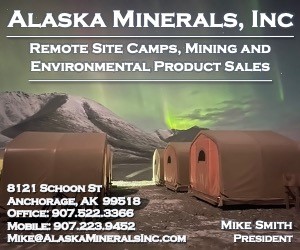
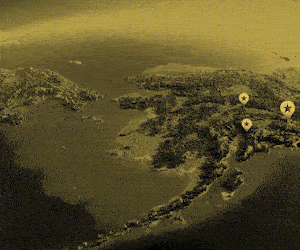

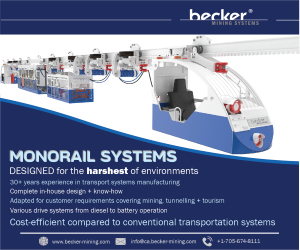

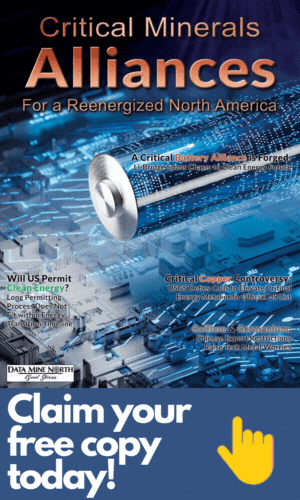
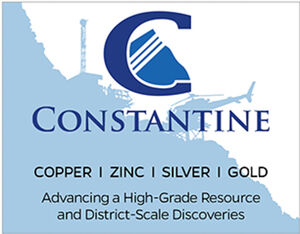
Reader Comments(0)